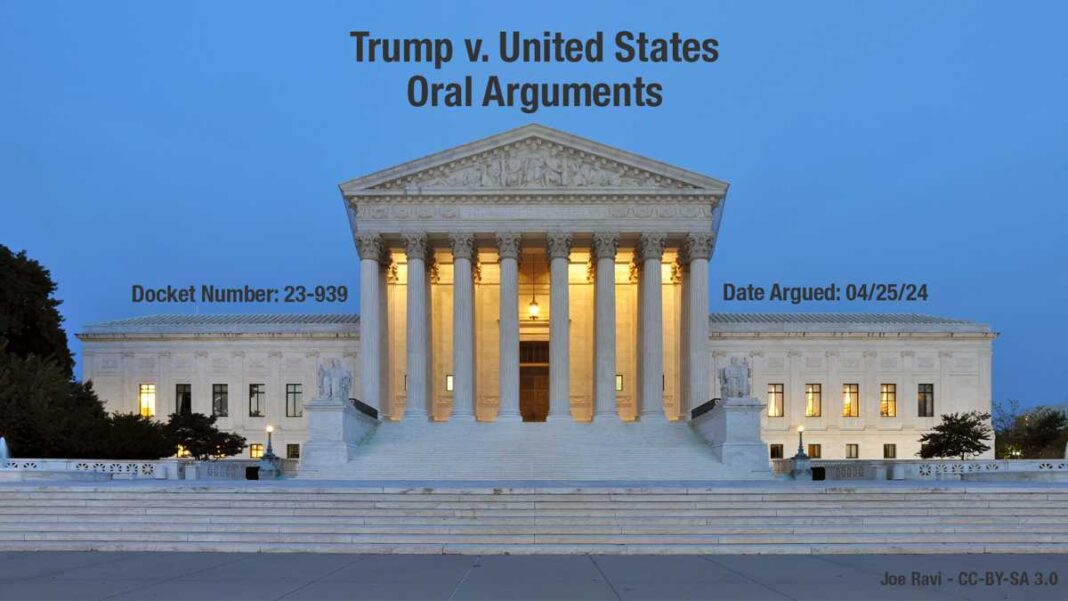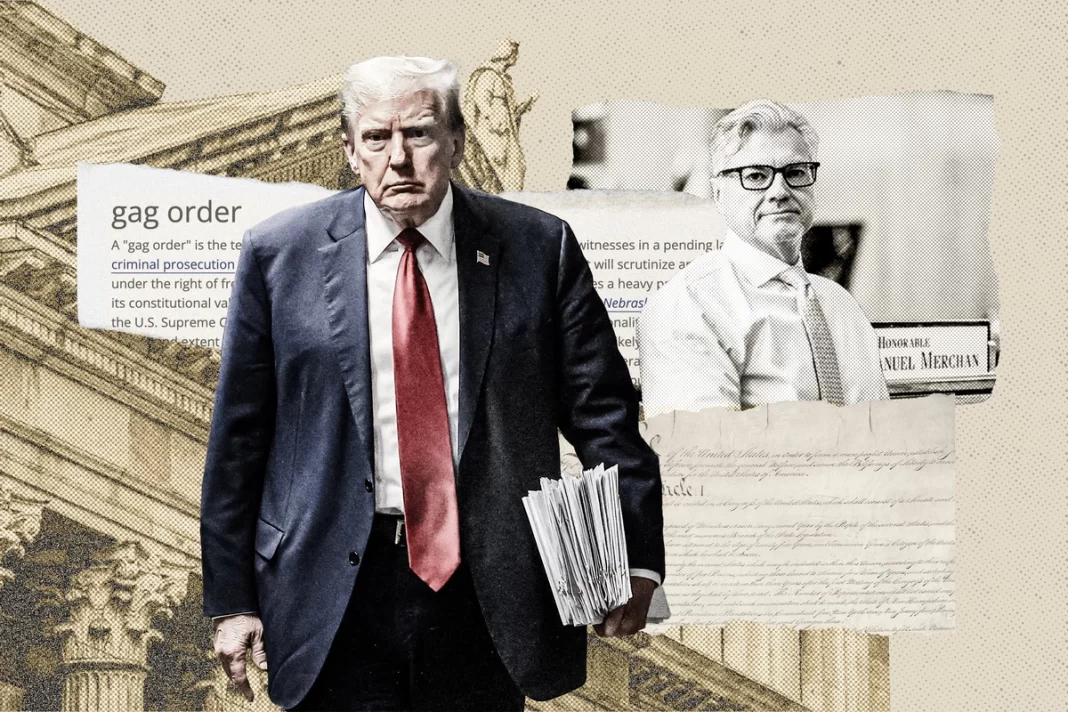Justices wrestled with how to define a president’s ‘official’ versus ‘private’ acts. A decision may delay President Trump’s trial, which would hand him a win.
The Supreme Court seemed skeptical on April 25 of former President Donald Trump’s claim that he should receive absolute criminal immunity, but it appeared to be open to allowing some level of immunity for presidents.
Conservative justices seemed poised to remand the case back to the district court in Washington with instructions on what constitutes official and private acts for further fact-finding proceedings. This would further delay President Trump’s trial in Washington and possibly other proceedings in Georgia, Florida, and New York, handing him a strategic win as he seeks to hold up cases until after the November presidential election.
Attorney D. John Sauer argued for President Trump, and former Deputy Solicitor General Michael Dreeben argued for Special Counsel Jack Smith. The case stems from President Trump’s attempt to dismiss Mr. Smith’s indictment related to his activities on and leading up to Jan. 6, 2021.
Justice Clarence Thomas kicked off questions by asking Mr. Sauer to pinpoint where in the Constitution he derives his concept of immunity. Mr. Sauer pointed to the executive vesting clause in Article II, which vests executive power in the president.
The justices spent much time wrestling with what constitutes an official act for which presidents should receive immunity. Justice Ketanji Brown Jackson, for example, wondered whether an act could be considered immunity if the president were acting in pursuit of private gain. It was her understanding, she said, that prior presidents understood they were vulnerable to potential prosecution.
Justice Jackson also asked why former President Gerald Ford would need to pardon former President Richard Nixon if he enjoyed immunity. Mr. Sauer responded that some of President Nixon’s conduct occurred in his personal capacity.
In defending his broad scope of immunity, Mr. Sauer pointed to Mississippi v. Johnson and Marbury v. Madison.
Presidential immunity isn’t explicitly mentioned in the Constitution and therefore often provokes debate about what the founders intended. Justice Elena Kagan and Mr. Sauer sparred over the historical intent for presidential power, with the former noting that the founders were opposing a monarch at the time and didn’t include an immunity clause in the Constitution.
By Sam Dorman







